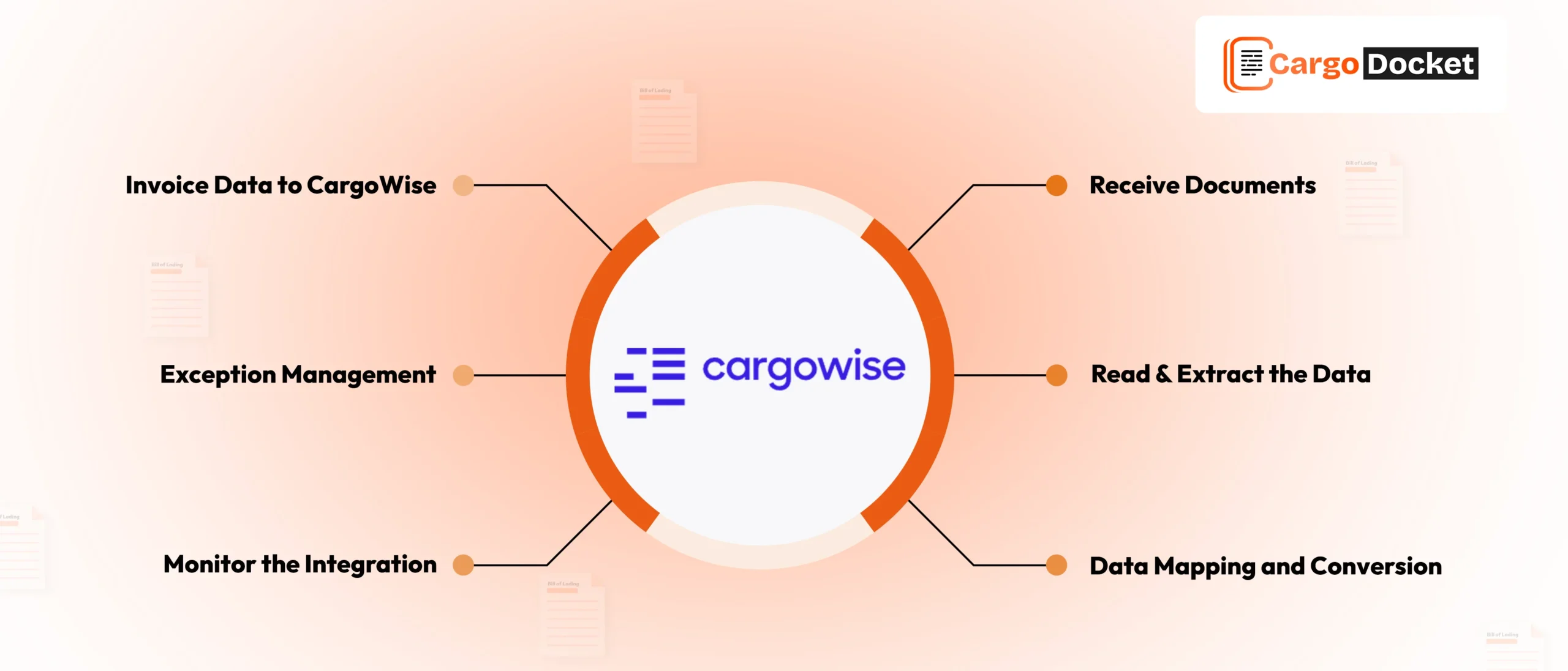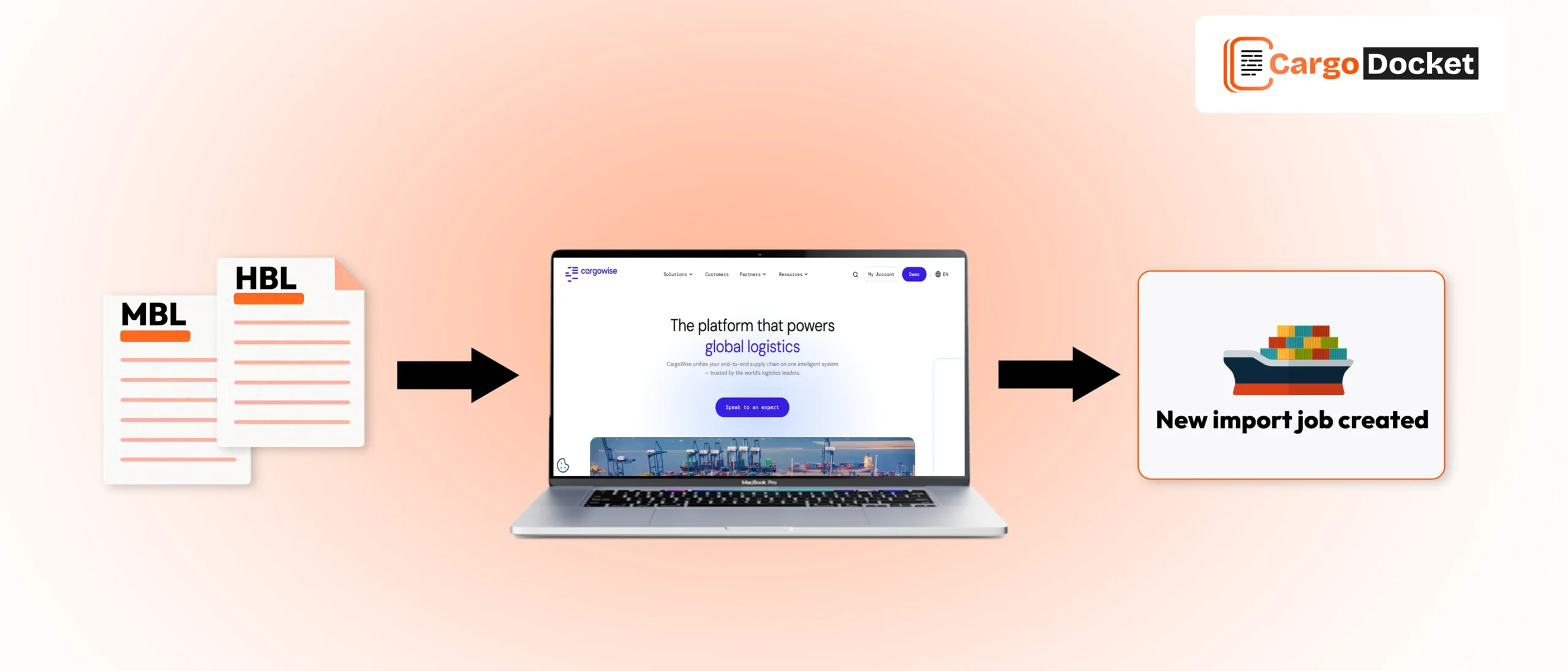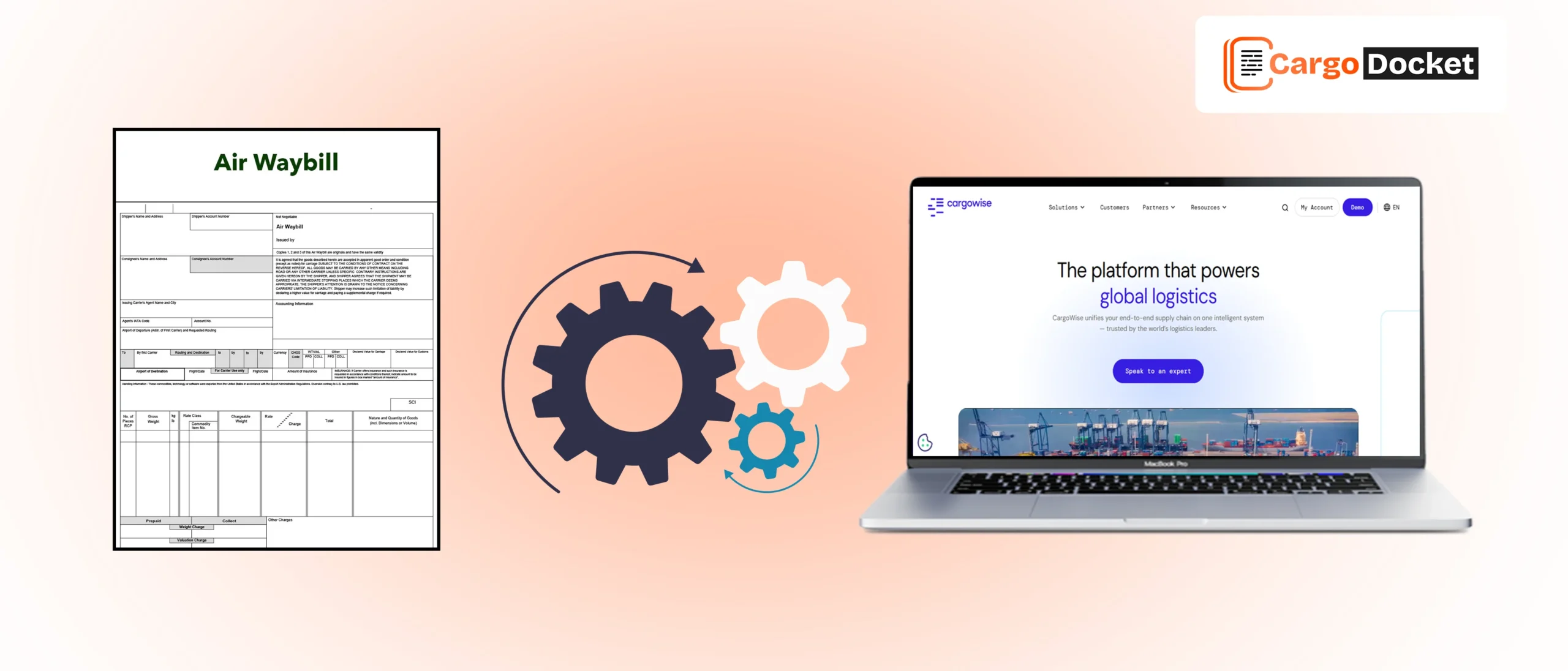RPA has established itself as one of the leading and most accessible automation solutions covering a variety of business verticals.
Automation has become an essential tool for simplifying operations, lowering human error, and increasing efficiency. For businesses utilizing CargoWise, a top global logistics software, robotic process automation (RPA) provides strong solutions. However, implementing RPA can provide unique obstacles, especially for those unfamiliar with its integration and management.
We at Cargo Docket are aware of these difficulties and provide customized solutions to assist CargoWise users in overcoming deployment obstacles. In this blog post, we’ll give six ideas for securely introducing RPA into your CargoWise operations, based on common challenges users confront and how Cargo Docket addresses them with additional tools to provide great service.
1. Understand Your Workflow and Data Needs
One of the most common challenges faced during RPA implementation is selecting the right processes to automate. With CargoWise, there are countless opportunities to automate tasks, from invoice processing to shipment tracking. However, without a clear understanding of which workflows benefit most from automation, you risk spending time and resources on areas that may not deliver the expected results.
Before entering into RPA, assess your current workflows. Identify high-volume, repetitive tasks that require accuracy, such as data extraction from invoices, document validation, or matching records with master data. Prioritizing these processes will allow you to focus your efforts where they can have the greatest impact.
At Cargo Docket, our team helps you analyze your existing workflows, ensuring that the right processes are automated to maximize efficiency and ROI.
2. Ensure Smooth Integration with CargoWise
One of the biggest hurdles for RPA in logistics is ensuring smooth integration between RPA bots and legacy systems like CargoWise. Without proper integration, automation can disrupt existing workflows, resulting in delays or errors in your system.
RPA bots must work seamlessly with CargoWise to extract data, update records, and communicate with other systems within your organization. Without this integration, you may face inefficiencies and potential roadblocks in your automation journey.
Cargo Docket makes this easy by offering pre-configured solutions designed to integrate flawlessly with CargoWise, helping you avoid potential integration issues.
3. Plan for Change Management and Staff Training
One of the less obvious challenges in RPA adoption is how your team will adjust to the new automated processes. Employees accustomed to manual workflows might struggle with the transition, which can lead to frustration and reduced adoption rates. This challenge is particularly significant in logistics, where manual tasks often span across different departments and require coordination.
Invest in change management strategies and staff training. Help your team understand how RPA will enhance their work, not replace them. Offer workshops and provide ongoing support to ease the transition. At Cargo Docket, we not only provide technical support for the automation setup but also assist with employee training, ensuring that your team is comfortable with the new system and can work effectively alongside the bots.
4. Maintain Data Security and Compliance
When dealing with sensitive data such as shipment details, financial information, and customer records, security is a top concern. Improperly configured RPA bots can inadvertently expose your business to data breaches or compliance violations. This is particularly critical in industries like logistics, where data privacy and regulatory compliance are essential.
Always ensure that your RPA solution includes advanced security measures, such as role-based access control, encryption, and audit trails.
At Cargo Docket, we understand the importance of security. Our RPA bots are designed to follow strict security standards, ensuring that your CargoWise system remains secure and compliant throughout the automation process.
5. Monitor and Optimize Performance Continuously
After implementing RPA, it’s not enough to set the bots and forget them. One of the most common pitfalls is assuming that once RPA is in place, the job is done. RPA bots must be monitored regularly to ensure that they continue to function properly. Bots may need adjustments as your operations evolve or if there are updates to CargoWise or other systems in your tech stack.
Set up a regular review process to monitor bot performance, evaluate system integration, and identify any opportunities for further optimization. This will help you keep RPA aligned with business goals and minimize the risk of operational disruptions.
Cargo Docket provides comprehensive monitoring tools that allow you to track bot performance, gather insights, and fine-tune the bots for continuous improvement. Our analytics tools help you stay ahead of potential issues and ensure that your RPA solution is always running at peak performance.
6. Start Small and Scale Gradually
A common mistake during RPA implementation is trying to automate too much too soon. While RPA offers great potential, diving into large-scale automation without proper testing can lead to mistakes, errors, and even a complete breakdown of operations. In logistics, where small errors can lead to significant consequences, taking the time to implement RPA gradually is key to success.
Automate a single process or department, gather feedback, and refine the implementation before scaling up. This step-by-step approach allows you to identify potential challenges early and address them before they become bigger problems.
Cargo Docket helps clients implement RPA at their own pace, starting with manageable, high-impact processes that can be scaled as the system matures. Our tools are flexible, allowing businesses to grow their automation capabilities without taking unnecessary risks.
Conclusion
Logistics operations can greatly benefit from RPA, especially for companies that use CargoWise. However, it’s essential to approach the deployment process with thorough planning and foresight if you want to succeed with RPA. You may lessen the typical problems that users encounter and provide the groundwork for a smooth RPA adoption by heeding these six recommendations: evaluate your workflows, make sure that integration is easy, prioritize training, maintain security, optimize performance, and start small.
At Cargo Docket, we’re committed to making an AI Document Automation for your CargoWise operations. Our tailored RPA tools and expertise help you address challenges head-on, ensuring that your automation efforts lead to enhanced efficiency, reduced costs, and long-term success in your logistics business.
Ready to start your RPA journey? Contact Cargo Docket today to learn how we can help you implement safe, effective automation solutions that drive results.





